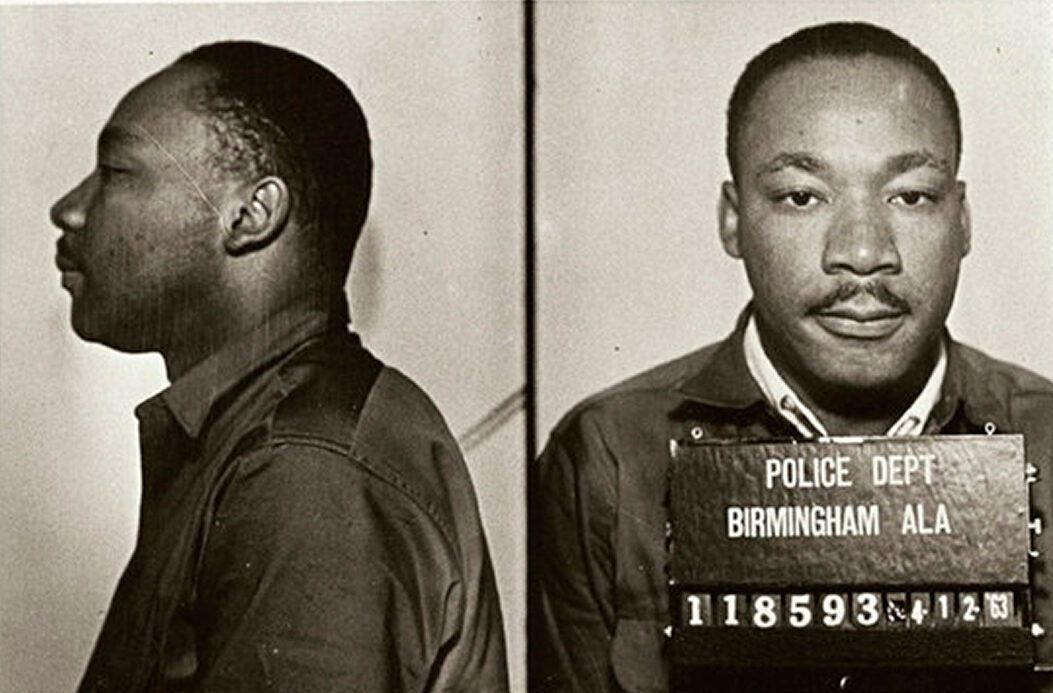Over several weeks, I’ve heard many statements that fit into one common theme—despair and not knowing what to do.
I get it.
When I started writing this newsletter a year ago, I focused on discussing principles of leadership using everyday examples. I do it for myself as much as anyone. It keeps me honing my thinking, reading, and writing skills. Of course, I could not foresee that a charlatan would fool enough of the nation again and be back in power.
When it comes to our country, we get what we put into it. We expect it to be perfect with minimal expectations of ourselves. If we are not guarded at what we’re told, and more mindful of our actions, a great deal of life disappointments become excuses to justify our inaction or blame others for our circumstances.
Hence, the issue of leadership has become THE issue of our time, and I’m here to tell you that this is an opportunity to know your purpose and your power.
In times of political despair, it's easy to feel powerless - to believe that one person's actions cannot possibly make a difference against seemingly insurmountable forces. Yet throughout history, countless individuals have proven this notion wrong, as if external events were the critical piece that pulled the willpower from them, creating ripples of change that transformed into waves of progress.
All by small but determined actions.
Consider Maurice Hilleman, a farm boy from Montana who went on to develop over 40 vaccines that have saved millions of lives. Working quietly in his laboratory, often late into the night, Hilleman created vaccines for measles, mumps, hepatitis A and B, and numerous other diseases. When his daughter contracted mumps in 1963, he didn't despair - he took a throat culture in the middle of the night and used it to develop the vaccine we still use today. A simple farm boy who used science for good. Decades of research to extend and save lives.
Or take the story of Lilly Ledbetter, who discovered she was being paid significantly less than her male counterparts at Goodyear. Rather than accepting this injustice, she filed a discrimination lawsuit that eventually led to the Lilly Ledbetter Fair Pay Act. Her individual stand against workplace discrimination created lasting change for countless workers. While an entire culture of men and women were trained to accept the status quo, it took one person to make progress.
King Donald or Independence?
Sometimes history does remember the lone individuals who do the right thing, even if unexpectedly. Polly Cooper, a member of the Oneida Indian Nation, saved countless Continental Army soldiers during the harsh winter at Valley Forge. While others watched from afar, she walked from New York to Pennsylvania to teach starving troops how to properly prepare and cook corn, while also nursing the sick. Or consider William Lee, almost forgotten to history, an enslaved man who served alongside George Washington throughout the Revolutionary War. Though not officially recognized as a soldier, Lee became Washington's trusted confidant and advisor, helping manage both military and personal affairs during the nation's founding moments.
The Power of Creative Resistance

Today's working folk will have to find increasingly innovative ways to make their voices heard, especially when the norms of a democracy are being assaulted. Some are using art as a catalyst for transformation, recognizing that creative expression can challenge societal norms and promote understanding between different groups. Banksy has become a legend for doing this around Europe. Sometimes showing is better than telling. Message and inspiration through art have been around since the beginning of time.
The path to change doesn't always require grand or public gestures. In fact, in times like these, looking for small wins is what will keep people united toward bigger changes.
Break Your Routines: Challenge the status quo by deliberately disrupting your established patterns. This might mean changing how you spend your free time or exposing yourself to new ideas through different books and media. Make a new friend who looks and thinks differently than you. Hear from someone with other spiritual beliefs.
Practice Grassroots Activism: Join or create local initiatives that address specific community needs. Local people often have the best knowledge of their context and challenges. I know of a few readers who put their time into helping the homeless, volunteering on a suicide prevention hotline, making calls and donations on behalf of worthy initiatives, changing careers to teach, and serving on a neighborhood board. Some of this might not be considered activism, but it supports community when community is being threatened.
Support Local Change-Makers: When I first ran for office twenty years ago, my earliest realization was how much time and effort people will put into national campaigns over local ones, though local and state initiatives have a much larger everyday impact. Instead of focusing solely on national issues, engage with and support local businesses and organizations that advocate for positive change. Do it quietly if you must, but do it. The power of your patronage and how you spend your money is the one thing that will get noticed in today’s environment. I’m going to return to this in a future issue.
The Multiplier Effect
Individual actions, when combined, create powerful momentum. The Underground Railroad needed many confidential hands along a thousand-mile route. One woman had to write a book to explain to America that the Everglades was more than a worthless swamp. And as Bayard Rustin demonstrated during the Civil Rights movement, working behind the scenes can be just as impactful as being in the spotlight. Despite facing discrimination as a gay man, Rustin helped organize the March on Washington and influenced the movement's commitment to nonviolent resistance.

The key is understanding that change doesn't require everyone to be a Martin Luther King Jr. or a Mahatma Gandhi. It requires ordinary people to do something; to be willing to take extraordinary stands in their own ways. Hugh Thompson Jr. proved this when he intervened during the Mỹ Lai Massacre, placing himself between American soldiers and Vietnamese civilians. And we may never know the Chinese man who stood in front of a tank, the symbol of oppression on his people, and then disappeared.
These individual acts of courage helped remind us of the lasting power of one person's moral stand against corrupt systems.
Perseverance
In times of political uncertainty, the temptation to retreat into helplessness is strong. However, history shows us that progress often begins with individual acts of courage, creativity, and conviction. The power to make a difference lies not in waiting for perfect conditions or grand opportunities, but in taking whatever action we can, where we are, with what we have. As we face the challenges ahead, remember that every major social transformation began with individuals who refused to accept the status quo and instead chose to act in a myriad of ways; some quiet, some at the lead, and some forever unknown. Their examples remind us that hope lies not in the size of our actions, but in our willingness to take them at all.
Be thankful for the opportunity to prove and protect Democracy.
Some places never get it.
Some places lose it.
Quick NO BS Hits
I’ve written many times now that technology is not going to replace the early need for human-to-human interaction for proper growth. When the Wall Street Journal picks up on that, it’s worth a read.
Just as a democracy needs involvement to stay healthy, a free market system needs guidelines and regulations to impede immoral profit. When a farmer can’t fix his own tractor, that’s a problem.
A sure sign of being on the wrong side of history is being afraid of words.
Take a moment to remember this book that was in the news most of last year. The link above is to a C-SPAN interview of the author. We have two issues that will be at the forefront during the next four years: Technology and the Environment. On a personal level, parents are recognizing that kids are too much on their phones. On a public level, getting kids off of screen time is going to need public policy and its going to need great natural environments to explore. Look at your community from a kid’s perspective. If you don’t want them on their screens, how easy is it to walk anywhere, to visit a friend, to visit a local park, to go fishing or take a walk in the woods. Develop your neighborhoods and cities from a child’s eyes and you get a lot more engaging places to live.
I've been pretending to be a writer now for fifteen years. I've read many books where I think I could contend with the skill of the author.
Life of Pi is not one of those.
It is a masterpiece. The level of description and the twists and turns, the psychological battle between suffering and survival, this is on a creative level that few get to and most of us only dream of. My daughter picked up a copy from Goodwill and read it and now claims it as her favorite book. She let me "borrow" it to read and wow, what a story.
The movie adaptation was excellent, but the book has more to it. It is a spiritual book, a naturalist's book, a book of being lost and being found. It is many things, worthy of thanks to the author for creating and sharing. Here’s a small excerpt:
One such time I left town and on my way back, at a point where the land was high and I could see the sea to my left and down the road a long ways, I suddenly felt I was in heaven. The spot was, in fact, no different from when I had passed it not long before, but my way of seeing it had changed. The feeling, a paradoxical mix of pulsing energy and profound peace, was intense and blissful. Whereas before the road, the sea, the trees, the air, the sun all spoke differently to me, now they spoke one language of unity. Tree took account of road, which was aware of air, which was mindful of sea, which shared things with sun. Every element lived in harmonious relation with its neighbour, and all was kith and kin. I knelt a mortal. I rose an immortal. I felt like the centre of a small circle coinciding with the centre of a much larger one.
Not only is this interesting, but it is a beautiful piece of writing the way it is presented. Take a look. As someone who loves books and loves to read, I also recognize the potential I see with AI. OpenAI has blended the two in this library at their work. It is gorgeous and I think a testament to the sacredness they hold for the written word in building the ultimate universal library in AI.
Great story of grit and determination. Proud to say the young librarian in this story is a fellow FSU graduate. This is a perfect example of the power of one. I’m always glad to see stories like this, the long arm of education and the reach to other places. People lost to history found again by the curiosity and persistence of someone who found their bliss.

Carl Sagan
In conversation with my youngest son, we talked about the importance of knowing history, and it suddenly dawned upon me that some people simply do not have a history to pull upon. If they didn’t study it in school, or learn from it at home, the kinds of things we are seeing today many have no prior knowledge of.
They are not doomed to repeat it, because they’ve never known it before.
History teaches you that there can be a real wolf in sheep’s clothing, that media can be consolidated and controlled, that the most wealthy Americans once tried to control and monopolize the American economy, or that economic inequality is the primary cause of societal collapse.
Carl Sagan wrote the following thirty years ago, in his 1995 book "The Demon-Haunted World: Science as a Candle in the Dark".
"The dumbing down of America is most evident in the slow decay of substantive content in the enormously influential media, the 30-second sound bites (now down to 10 seconds or less), lowest common denominator programming, credulous presentations on pseudoscience and superstition, but especially a kind of celebration of ignorance."
Speaking of using your power, a longtime friend posted this and I share it for the message. Having skipped inaugural TV, I’ve only heard bits and pieces and saw the reaction responses from the typical crowd of imposters. I would say to watch it for yourself, especially if you practice Christian principles. Watch it and consider we are in a time when this message even has to be given. As someone else put it, this will be the time to assess whether decency will be able to stand against authoritarian cruelty.
I had some pride when my youngest son mentioned he ordered Ryan Holiday’s latest book to read. Ryan has a regular newsletter and podcast and has not only been a good writer but a huge advocate of reading. Here’s a section from one of his latest pieces that is worth sharing because it is timely to events and he lists a few books I am familiar with:
Invisible Rulers: The People Who Turn Lies into Reality by Renee DiResta (Audiobook)
My friend Jordan Harbinger (who I just had on The Daily Stoic Podcast, listen here) pointed me to Renee’s book, which I read with horror and understanding. As hard as it is for me to believe that Obstacle is 10 years old, it’s even crazier to me that I started writing Trust Me I’m Lying in 2011! I remember thinking, as I worked on that book in New Orleans, “I hope I’m not too late with all this.” If anything, these ideas are more timely and more urgent now, as Renee points out. When people can make things trend… they can make things real. Sadly, people were much earlier to this stuff than either of us. When Renee was at The Painted Porch, I gave her a copy of Upton Sinclair’s (author of The Jungle) book The Brass Check. The Brass Check was written about media manipulation in 1919! Neil Postman’s Amusing Ourselves to Death is another classic and so is Daniel Boorstin’s The Image. If more people read these books and familiarized themselves with Reene’s work, perhaps we would not be so susceptible to demagogues and grifters and crazy people. But we are. (There’s a line in Sinclair’s book where he says in a country governed by public opinion, what forms public opinion governs the country). Media literacy is a foundational skill and if you do not have it, you are at the mercy of forces (and fools) you cannot even begin to comprehend. Thirteen years ago, I knew things were bad, but even I could not have imagined the consequences that would follow (the death toll from anti-vaxxers alone is mind-boggling). After reading this book, I shudder to think of what comes next…
I include this piece for several reasons. In last week’s issue, I mentioned the need for a reformation of policing as a community service and not a standalone political operation with its separate unions. This is a good reason why.
Most people want laws that make sense, carried out by professional people, and done safely and equitably. That is not happening, and outcomes like this, where a union will blindly follow allegiance instead of the facts, is dangerous and anti-American. I believe racism fuels much of this. The level of silence amongst confederate level Republicans is also damning, for these recent pardons included people who were factually identified as assaulting and injuring police officers.
The devil is always in the details. Be willing to read them. And if you don’t read, and you allow yourself to be told what to think through repetition, it will be extremely difficult to break free.

"If you write, fix pipes, grade papers, lay bricks or drive a taxi - do it with a sense of pride. And do it the best you know how. Be cognizant and sympathetic to the guy alongside, because he wants a place in the sun, too. And always...always look past his color, his creed, his religion and the shape of his ears. Look for the whole person. Judge him as the whole person."
Rod Serling
In 2016/2017, I was teaching GED classes with mostly high schoolers. We often talked about history and current events to get them thinking and prepared for their testing. I can remember even then being stunned by some of the statements students made. Many of these students were simply parroting things they heard at home or in their culture bubble. They had done no real exploration on their own via school or family. Most of the kids were a mirror of their culture, and if it was steeped in low information at home, not being challenged and stimulated in school, or old-fashioned racism, well that’s how a democracy staggers.
There was very little I could do other than to have open, objective discussions on why certain views were supported or through reading suggestions.
After that election, many of us were stunned and this is the theme that went through my head time and time again, and I return to it now, still fitting, still alarming, still warning us to pay attention to history and storytelling throughout the ages, while there is still time.
And Now….
Hope to see you next time. Keep reading, practice your gratefulness, and remember: Be a good human.







